AMA with AMA - Answering YOUR Questions!
Being Present, Making Plans and 'Barriers' to Enlightenment
Dear Kula Diaries friends,
I’m back with another AMA! I have had so much fun experimenting with ‘other types’ of Wednesday content for The Kula Diaries, but I also don’t want to entirely neglect my AMA column, which I love writing.
As a reminder, you are welcome to submit questions of ANY KIND through the Kula Diaries Vault, and I’ll keep moving through my extensive list of questions to try and answer as many as I can.
Also — if you’d like to submit a ‘signature’ to our trail register collaborative post … the current prompt is Trail Food. I’ll be sharing those answers within the next few weeks. Anything goes for The Trail Register — so think outside the box and get creative with the prompt! If your submission is selected, you’ll get a fun thank you and a gift from me.
Both of my AMA questions this week are in a similar ‘family’ — both are about mindfulness and presence, which is definitely a topic that I enjoy writing about. Feel free to use the comment section if you want to chime in with your own take on the answer.
Without further adieu… let’s get to the questions!
Dear AMA,
Where does making future plans and daydreaming fit in with mindfulness and staying in the present moment?
This was a question that I pondered quite a bit as I began to get curious about being in the ‘now’. Afterall — if I’m only ever right now… how can I do or want anything else?
I have some good news: you can be mindful and still make plans for your future and still daydream about the things that you want to create for yourself. In fact, the planning itself becomes a part of your present moment experience of life.
The more problematic hinderance to mindfulness comes when you find yourself wishing away your current moment so that you can be in a ‘better’ or ‘more desirable’ future. If you find yourself saying things like, “I’ll be happy once I’m on vacation”, that would be a pretty good clue that you viewing your current moment (NOW) as simply a means to an end. One of the characteristics of being fully present is that you are not being pulled in either direction — either reminiscing about or regretting the past… or worrying about or anxious about the future or needing it to be here.
To illustrate these principals, I’ll use an example from my own life: my business, Kula Cloth (sorry, it’s just an easy example for me to use - ha!). I have a desire for Kula Cloth to be wildly successful. I would love for Pyka Gear to grow into its own outdoor gear brand. I want to build a world class fulfillment center for Kula Cloth, and I want to uplift and support many people and organizations through the existence of Kula Cloth. I want to use the vehicle of Kula Cloth in order to impact the lives of millions of people around the world. These are things that I know in my heart that I deeply desire. I don’t necessarily know exactly how to do these things, but I do believe that they are possible. With this vision held in my heart, I can start to take small steps that feel as though they are leading me in this general direction — for instance, I want to host a booth at an event to get exposure in a new region… or maybe I want to consider running some sort of a special collaboration with a new brand. These are things that will absolutely require planning — however, I can be present and mindful as I do the planning. How do I know if I am? If I find myself feeling excessive fear or worrying… or catastrophizing about the future… or needing for certain things to happen in order to be happy… or doubting whether or not I will ever achieve my goals… etc… if I am in my head as I am doing the planning — worried about an imaginary future that does not exist, then I am unconsciously identified with the fear-based thoughts in my mind. There is absolutely nothing wrong with planning or daydreaming — in fact, they are relatively essential functions of our mind in order to navigate through life. They only become problematic when we begin to create false narratives and stories that are not necessarily true.
Let’s use another example: I want go on a backpacking trip and climb a mountain because I enjoy being outside. This is entirely reasonable, because being mindful and present does not mean that you must sit in a chair and meditate all day long. Thank goodness, right? Instead — take the steps that you need to plan for your trip. This might include physical training or purchasing supplies or requesting vacation time from work. There are numerous logistical steps that must be taken in order to plan for and prepare for a backpacking trip. You might also want to daydream about what it might be like to be on this trip — for instance, many climbers use visualization as a technique to help them ‘pre-climb’ a route so that they can mentally prepare for a more grounded and peaceful experience. As you plan for your trip, there is absolutely nothing about your planning process that is inherently not mindful. In fact, I often find that methodically packing and preparing for a trip is a very meditative experience.
Compare these two very different planning and preparing experiences (keep in mind that neither way is wrong or better — they are just different):
The non-present backpacker: I need to get out on a backpacking trip because I hate my job, so I’m super desperate to get away. Ugh. I need to get out of here so I’m going to try and find a backpacking trip, but honestly I don’t know if my stupid boss is going to give me the time off because he’s a complete idiot and doesn’t really care about me anyways. What a jerk. I still can’t believe that he made me come in last Saturday. If I don’t get out on this backpacking trip, I’m going to freaking lose it. I don’t even know where to go, but I feel sick just thinking about whether or not I’m going to get to go on this trip. I’m also worried about the route. I read that it was a little steep — if we do the trip that I’m thinking about — so I’m super nervous about that, because I hate exposure and I’m really wondering about what could happen and I don’t know if I can handle that type of steepness on a trail, but hopefully I can. I also don’t know what gear to bring…
The mindful backpacker: I love getting out on backpacking trips, so I’m looking forward to planning one. I’m going to trust that the timing on this will work out perfectly. I’m going to sit down today and look through a backpacking book that I have, and that will be an enjoyable way to read about some trips I might like. I love how I feel when I’m out backpacking, and I’m really looking forward to that. I also just love being here now and enjoying this whole planning process.
Now, obviously these are somewhat dramatized examples of being not-present versus being present — but, you get the idea. The experience of being non-present while planning is very much an experience of being ‘in the head’ — while a person who is planning from a place of being mostly present will be an enjoyable and peaceful experience with an overall sense of enjoyment and non-attachment.
Keep in mind: this does not mean that you should not plan for things in a responsible way. I’m not going to go on a backpacking trip and leave my first aid kit behind because it’s ‘not in the moment’ for me to worry about getting injured. I am not going to forego looking at the weather forecast before a hike, because I need to be more in the moment. To the contrary — mindfully planning for something, includes taking reasonable actions to ensure that things go smoothly — while simultaneously not getting lost in a downward spiral of ‘what ifs’ that are not currently real.
Eckhart Tolle speaks to planning and being present in The Power of Now when he writes, “If you set yourself a goal and work toward it, you are using clock time. You are aware of where you want to go, but you honor and give your fullest attention to the step that you are taking at this moment. If you then become excessively focused on the goal, perhaps because you are seeking happiness, fulfillment, or a more complete sense of self in it, the Now is no longer honored. It becomes reduced to a mere stepping stone to the future, with no intrinsic value. Clock time then turns into psychological time. Your life’s journey is no longer an adventure, just an obsessive need to arrive, to attain, to ‘make it’. You no longer see or smell the flowers by the wayside either, nor are you aware of the beauty and the miracle of life that unfolds all around you when you are present in the Now.”
I’ve mentioned before that I was unhealthily addicted to hiking and mountaineering for a long period of time. Eckhart’s words speak deeply to what I experienced during that time of my life — I made a lot of plans, but I was so focused on the next peak… the next climb… the next adventure… that I never really noticed where I was. I was on the summit of one mountain, already starting to feel anxiety about going home and needing to have another climb planned. I went on more vacations and spent more time on backpacking trips — living what most people would have called, ‘the dream’, and I was completely and utterly miserable. Sure, there were a lot of amazing moments — but they were a fleeting and temporary balm. I’d get home, and I’d sink into a dark cloud of anxiety, until I had my next goal dangling like a carrot in front of my face. I never caught the carrot, because the insatiable desire for more and more and more never went away. It didn’t go away until I realized that it wasn’t the mountains that I wanted — it was a deeper connection with the universe that I already had within me.
Planning for things and setting goals is fun, and there is nothing that I love more than daydreaming about the things that I want to create. But, if you can learn how to plan and set goals without attachment — with pure enjoyment for all of life, and in particular, for the only moment that we ever have — right now — you will discover that your life experiences, even the ones that you would previously have regarded as mundane or mediocre, develop a glowing lustre. The lustre of life itself — which you can only see when you are looking at the world around you through the lens of your heart.
Dear AMA,
How can one be enlightened or mindful when some basic needs aren’t met?
I’ll preface this answer by saying that I am writing this from a place where absolutely all of my basic needs are being met — and then some. I had hot coffee this morning. I ate a croissant. I have a kind and loving husband. I own a business. I am decidedly not lacking any of my basic needs at all. I also want to be very clear that I would not consider myself an ‘enlightened being’ (and I hope it doesn’t seem that I feel that way about myself). I am mostly mindful, but I spend the majority of my time fluctuating in a state between unconscious identification with my thoughts/mind and being present. Being present and mindful simply means that you are currently experiencing life in the present moment — whatever that moment looks like. The more and more that you practice skills like meditation, the more and more you train the ‘muscle’ of your consciousness to live in a state of connection with what is.
I think it would also be helpful to define ‘basic needs’ — I’m not sure what the questioner had in mind when they wrote this question, but in general, I’d say that the basic human needs are food, water and safety. With regards to ‘safety’, I’m specifically referring to physical safety — such as shelter and not being in an imminently dangerous or life-threatening situation. I believe it would also be fair to say that there are things that people want to have in their life, but they wouldn’t necessarily qualify as a basic human need. If somebody is deprived of their basic needs, then it is very likely that they will undergo a tremendous amount of physical and/or mental suffering. In many cases, this could absolutely be a barrier to one’s ability to be mindful. And yet, there are also numerous cases throughout history when people who have experienced the most traumatic and horrific circumstances have reported that these incidents provided deep moments of spiritual awakening. So it might be that the answer to the question, “Will this situation assist with or hinder spiritual enlightenment and mindfulness?” can be answered by saying, “Well, it depends on the person.”
I’ll make a slight shift here — and talk about suffering in general — because if you are reading this on a phone or a computer right now, I’m going to make a few assumptions: you are not starving, you have ample access to clean water, and you are not in imminent danger. However, you might be experiencing suffering in your own life — and that’s OK. I’ve had my own personal experiences with intense suffering and I’ve also watched individuals who have undergone spiritual transformations in their own lives who have experienced similar types of suffering. As I’ve studied and learned about these individuals, I’ve noticed that, in many cases (including mine), intense suffering is the catalyst not for less mindfulness, but for more mindfulness. In fact, it is my suffering that guided me towards the spiritual path that I now find myself on. In one of my favorite Eckhart Tolle videos about suffering, he describes that these ‘seemingly negative circumstances’ offer the greatest opportunity for spiritual change in the life of a human being. In one part of the video he chuckles as he says, “And if hearing this annoys you or makes you mad… you haven’t suffered enough yet. I’ll see you again in a few years.”
Some of the greatest, most ‘awakened’ and enlightened minds in the history of the entire human race belong to individuals who experienced intense and unimaginable suffering during their lives. I want to make it clear that I am not talking about the type of suffering that most people complain about — day to day trivialities or that person who annoys you at work. I am specifically referring to individuals who have endured exile from their own countries… have been held prisoner in unthinkable living conditions… or those who have experienced starvation… horrific illness… or tremendous pain, etc… While it certainly does not happen to all people who experience these types of situations in their lives, there are many people who have turned the most seemingly horrendous scenarios into their reason for mindfulness. In those moments of absolute surrender, they are able to let go of the ego that holds them attached to how they believe that they world should be — and they recognize their own consciousness and their own deep connection with the infinite love that permeates all things. In other words: they see through the illusion of the world of form, and they look deeply into the world of the formless — a place of pure, conscious awareness and peace.
What sets apart somebody who is destroyed by suffering from somebody who transmutes suffering into spiritual enlightenment? Honestly, I don’t know. Maybe each of us is simply at a different place in our own unique journey and we discover the path at the right time for us. If somebody is ‘waiting for things to be different’ in order to achieve some type of spiritual enlightenment or mindfulness, then it’s likely that they will never find what they are looking for. It sounds cliche, but it is in the recognition that you already have what you are seeking that you discover the peace that exists beyond any external circumstances. This is why so many spiritual teachers use the metaphor of the ocean — rough and choppy on the surface, and still and calm in the depths.
The beautiful thing about mindfulness and presence is that it does not need anything to be different in order to experience it. It is not reserved for an ‘elite few’ — it is, in fact, for all of us. Mindfulness and presence only requires that we surrender to ‘what is’ — even if it is not what we want. There are no special tools or circumstances needed in order to be present. You don’t need to have a lot of money or to live in a spa-like setting. It’s easy to assume that finding presence or mindfulness is more challenging for people who are in ‘bad’ situations and 'easier for people who are in ‘good’ situations — but it is often the people who live in the ‘blah’ areas of life that are less likely to be pushed into a moment of surrender and presence. Afterall, if things are always ‘just OK’ — what would drive them to discover the depths of something beyond the story that defines them?
Being mindful or being ‘enlightened’ does not mean that you are floating on a cloud in a perfect and serene world of absolute bliss and perfection at all times — it is a deep surrendering to the current of life itself. Eckhart Tolle, arguably one of the greatest spiritual teachers of this century, was suicidal… and then homeless… living on a park bench when he experienced his own spiritual awakening. His deep sense of presence did not arise when he was living in an ‘ideal’ situation — it came before that… and then his life changed to reflect the peace that he found inside himself.
I’ll end by sharing one of my favorite quotes from The Power Of Now:
Many people never realize that there can be no ‘salvation’ in anything they do, possess, or attain. Those who do realize it often become world-weary and depressed: If nothing can give you true fulfillment, what is there left to strive for, what is the point in anything? The Old Testament prophet must have arrived at such a realization when he wrote: “I have seen everything that is done under the sun, and behold, all tis vanity and a striving after wind.” When you reach this point, you are one step away from despair — and one step away from enlightenment.”
To offer no resistance to life is to be in a state of grace, ease and lightness. This state is then no longer dependent upon things being in a certain way, good or bad. It seems almost paradoxical, yet when your inner dependency on form is gone, the general conditions of your life, the outer forms, tend to improve greatly. Things, people, or conditions that you thought you needed for your happiness now come to you with no struggle or effort on your part, and you are free to enjoy and appreciate them — while they last. All those things, of course, will still pass away, cycles will come and go, but with dependency gone there is no fear of loss anymore. Life flows with ease.”
A few weeks ago, I wrote down a little morning prayer of sorts as I was sitting on the ledge overlooking the valley near our home. As I read this question, I felt that this short poem was a perfect addition to this topic. This is what I wrote down:
There is nothing I need to fix today I trust life to show me the way I stop and breathe I notice ease Now at last I know my path Is not to know But instead to flow With each new breath I let it go.
Friends — thank you so much for being here this week, and for submitting such thought-provoking questions. I love contemplating them and having such a lovely space where we can talk about things that really matter.
In my opinion, sharing information about mindfulness is so important — because, as other folks discover their own sense of being present, it shifts and changes the energy of the entire world around us. A person who is present and mindful is a person who is contributing a loving ripple of kindness throughout our world.
May we each remember that we all have the power to create our own ripples of loving kindness, each and every day.





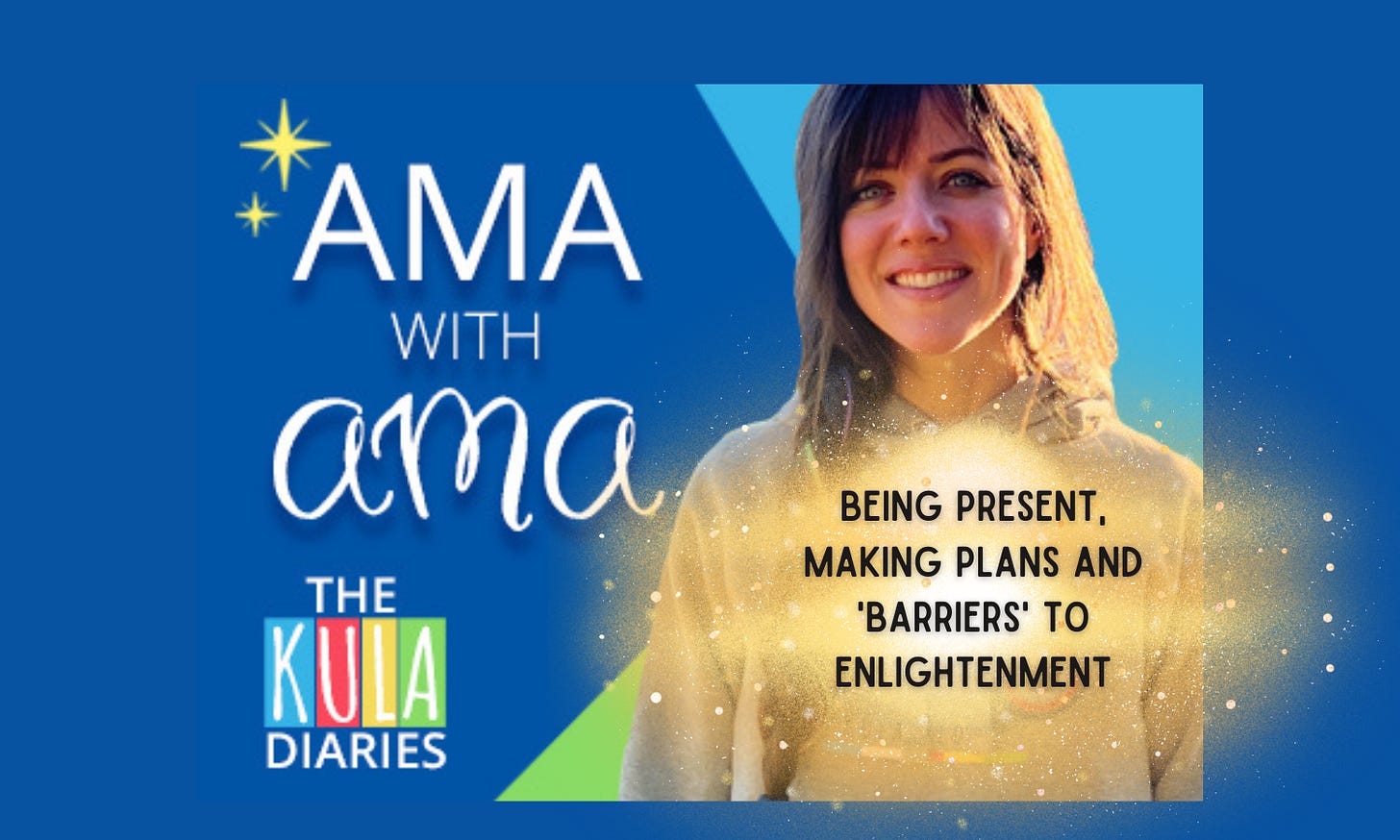

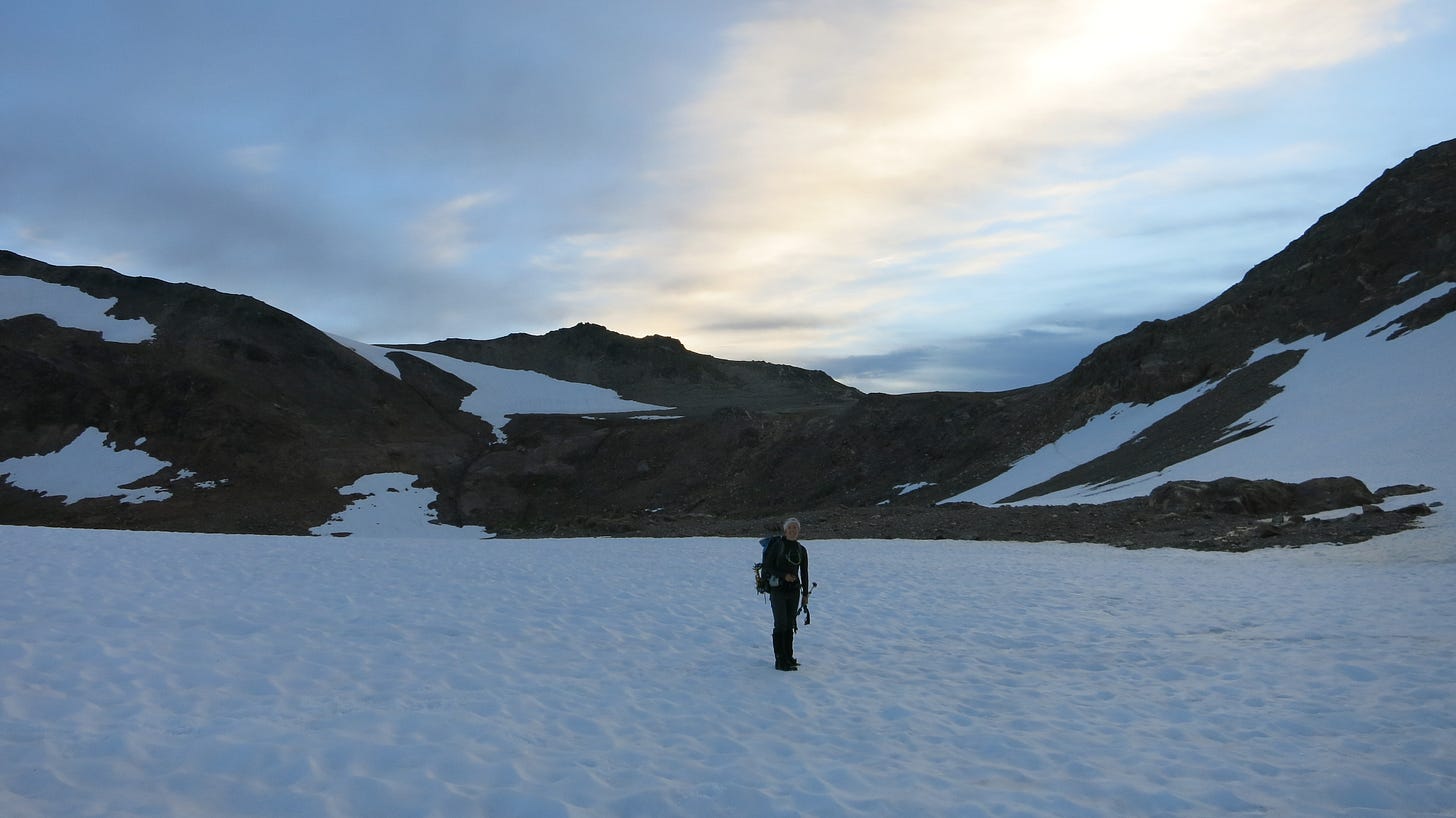
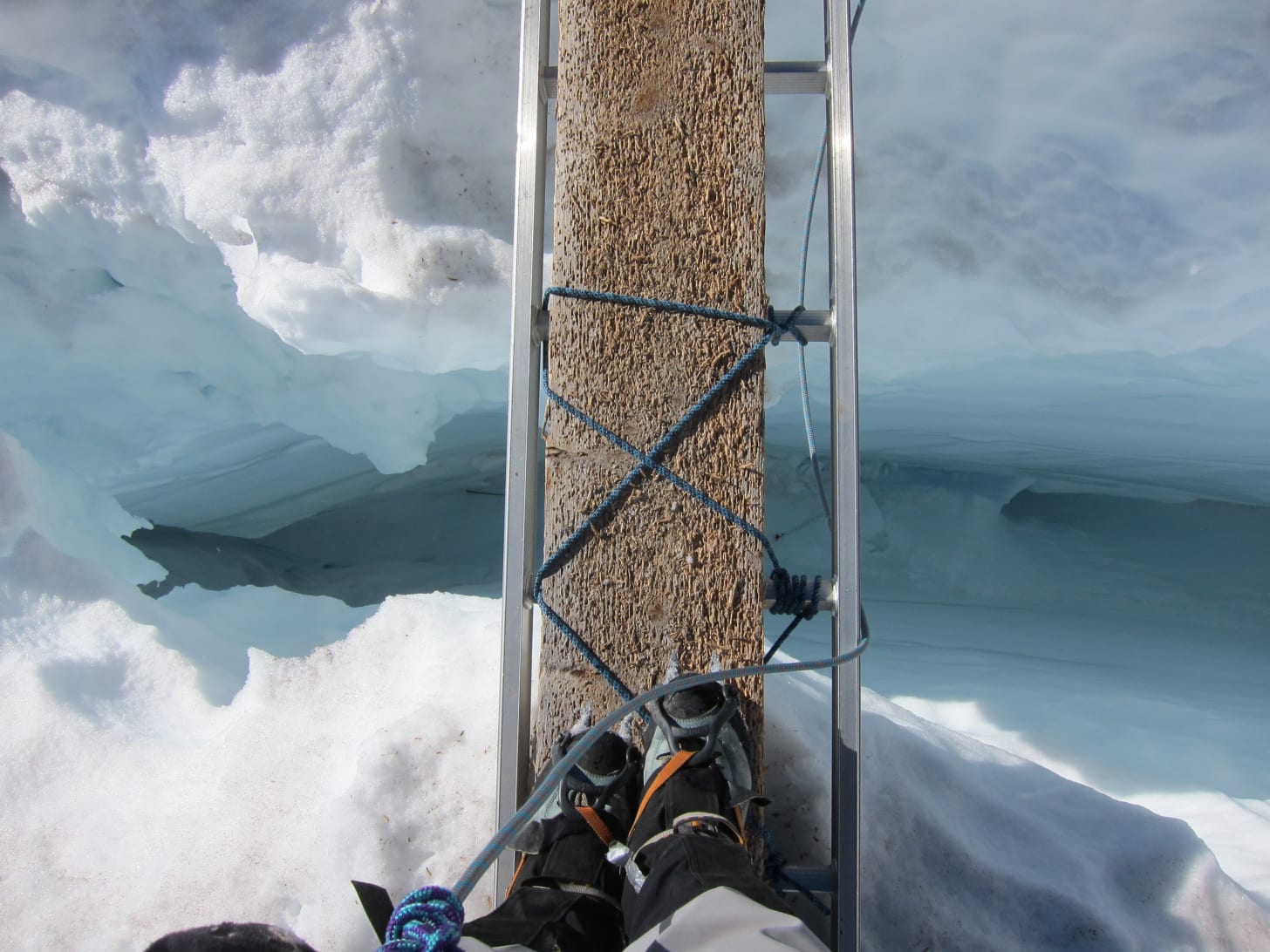
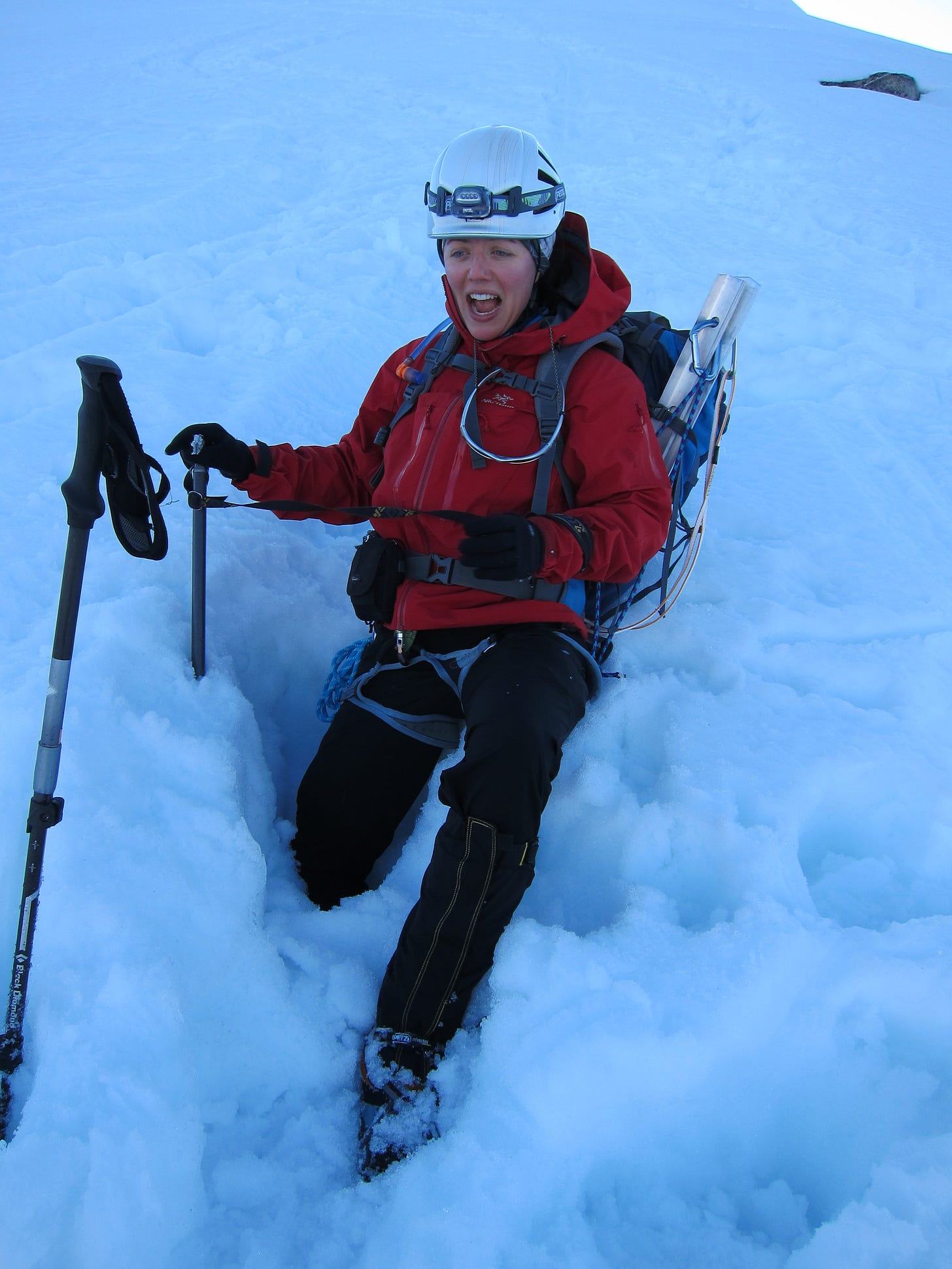
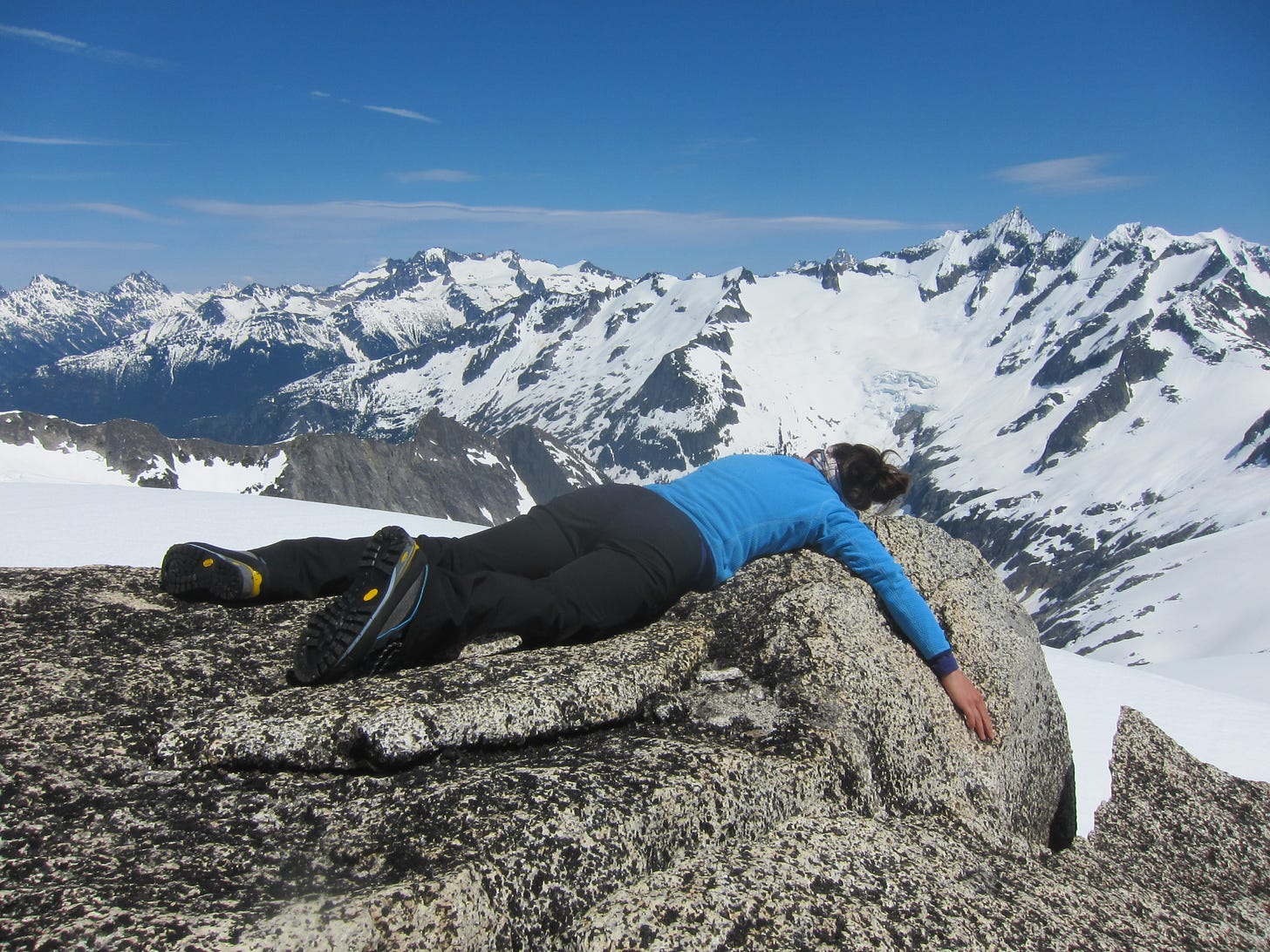

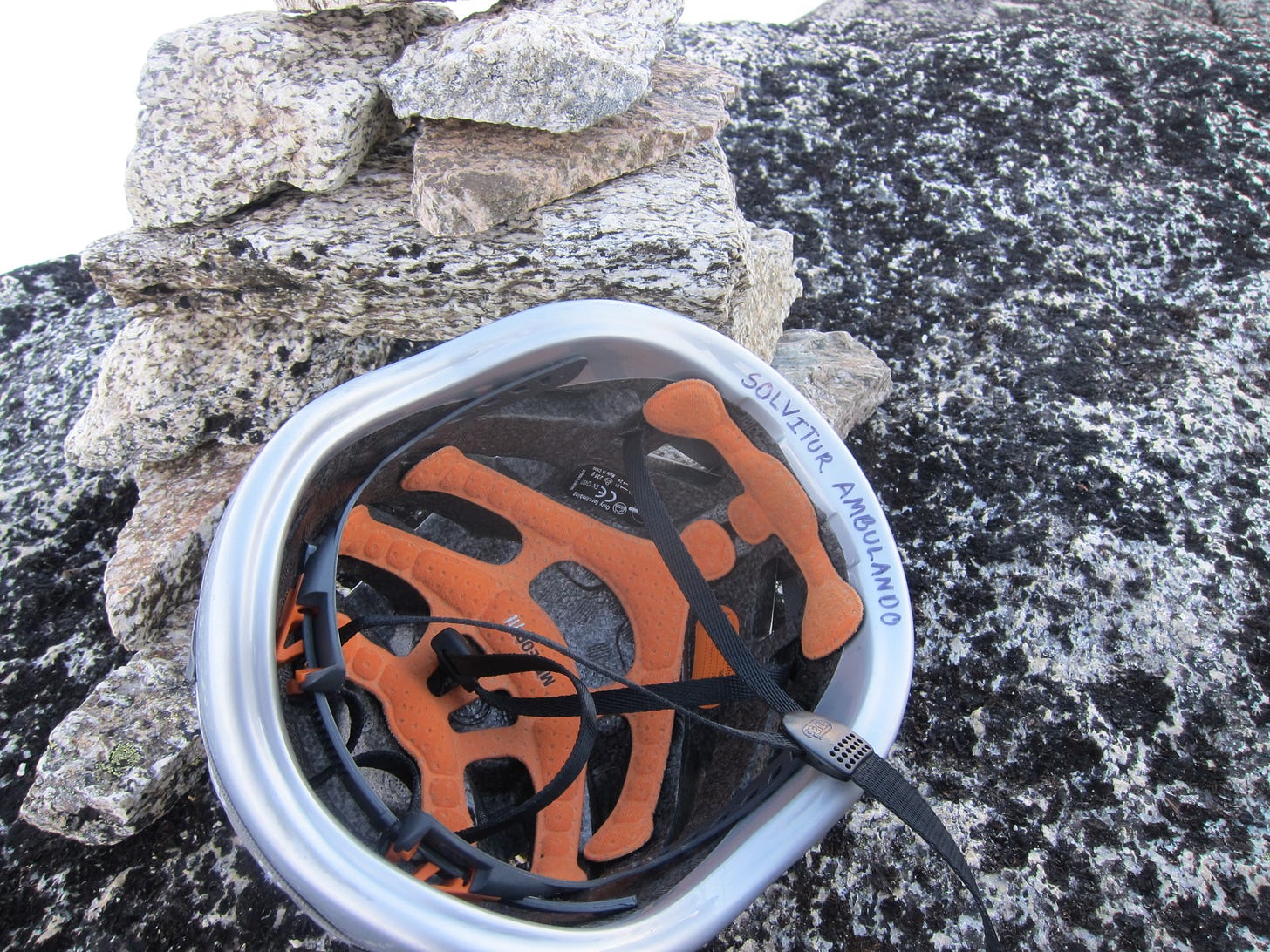
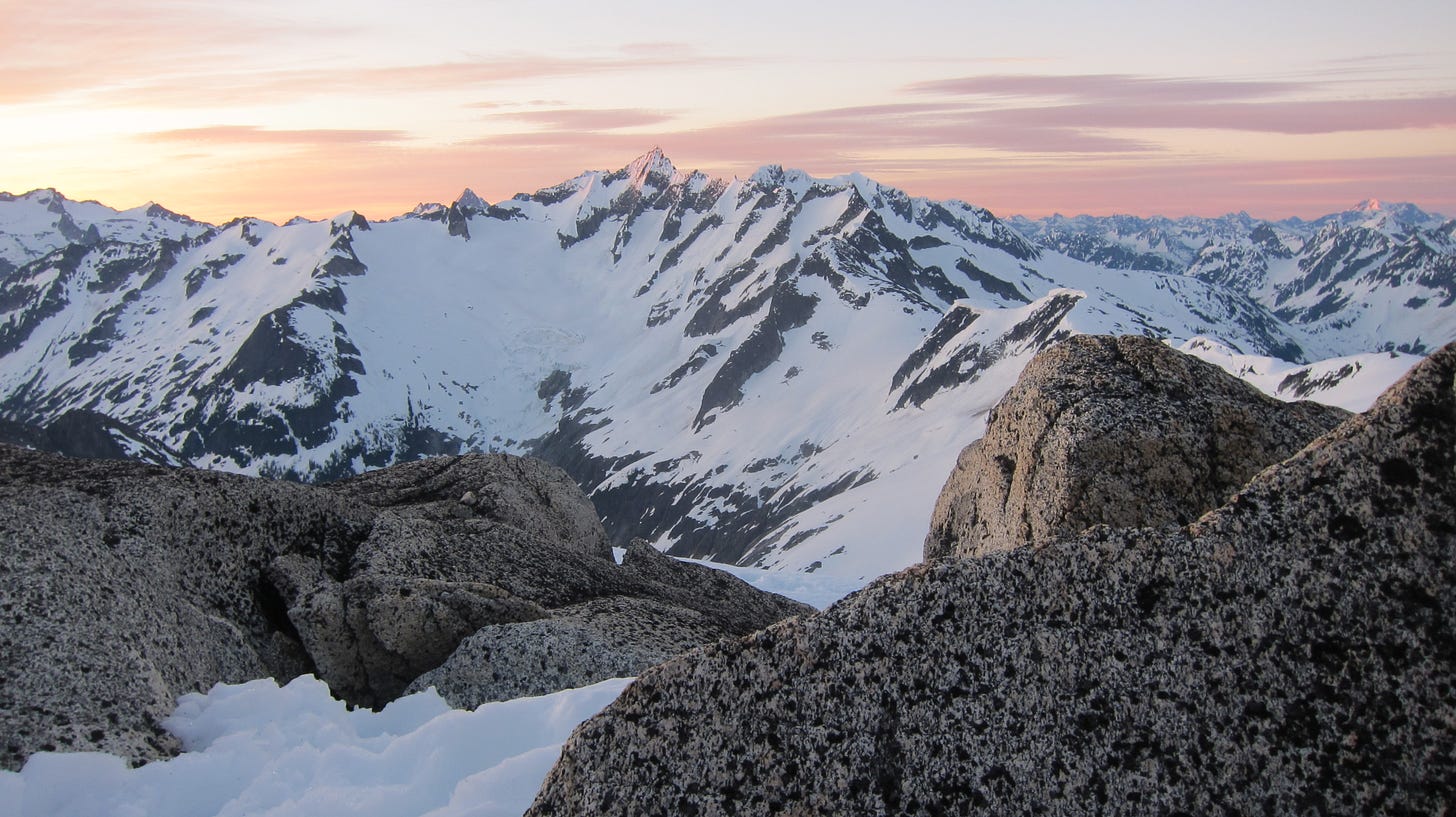
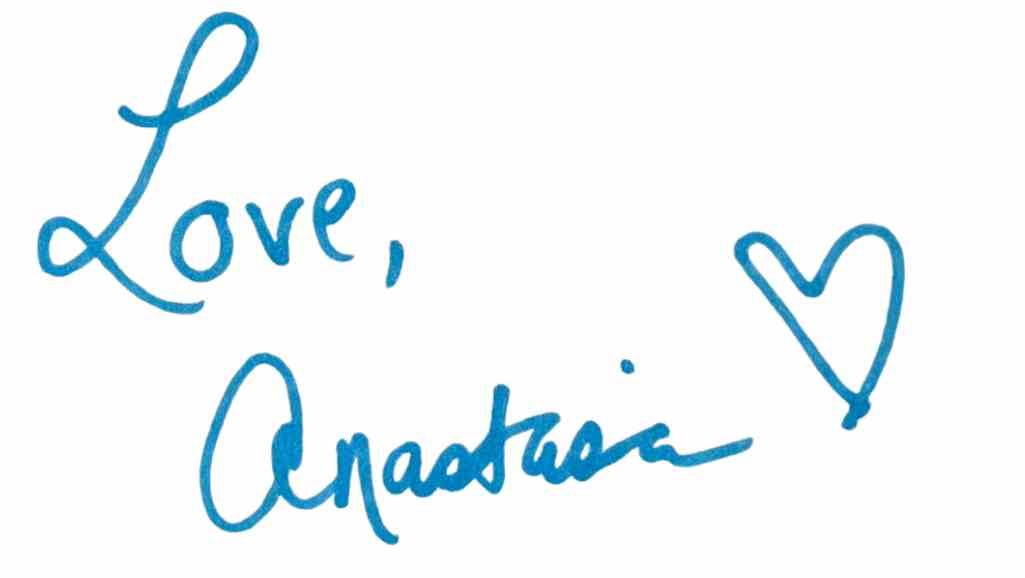
This was one of the most useful sentences to me:
“The more problematic hinderance to mindfulness comes when you find yourself wishing away your current moment so that you can be in a ‘better’ or ‘more desirable’ future.”
And the “keep in mind” paragraph with the first aid kit and weather forecast might have made me laugh out loud.